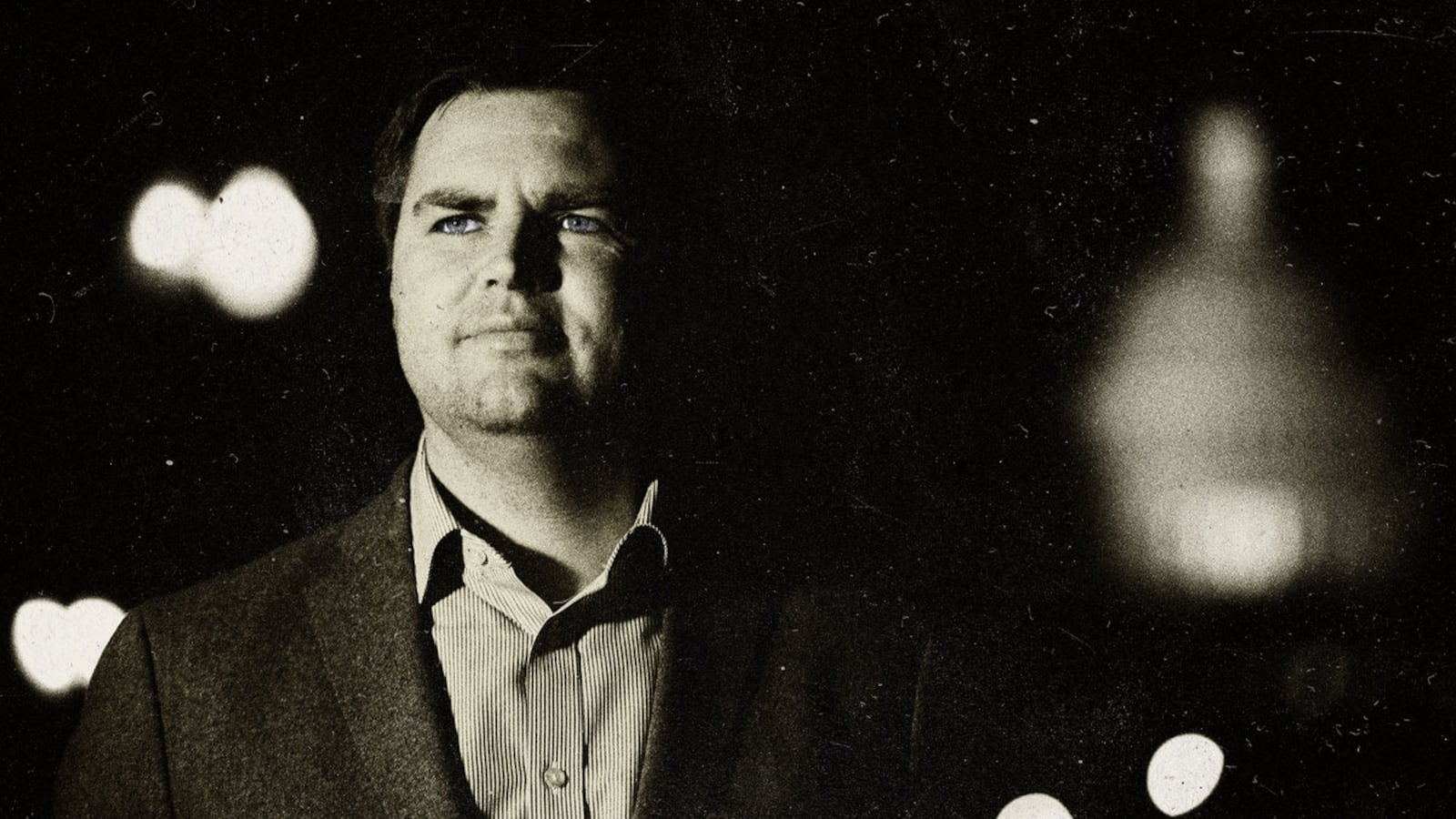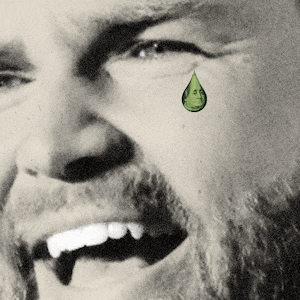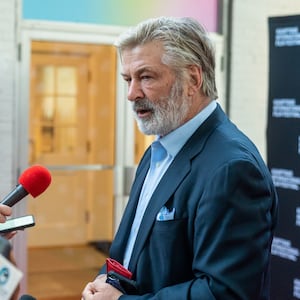Multimillionaire venture capitalist J.D. Vance has put issues of race and white privilege front and center in his Senate campaign. In fact, he’s gone so far against white privilege that he’s claimed people should be able to sue businesses that tell people they need to “deconstruct their privilege, or they need to sacrifice or repent of their whiteness.”
But—like Vance’s flip-flop on his past criticism of Donald Trump—the Silicon Valley veteran had a very different take on white privilege not so long ago.
In a 2017 interview published two weeks after Trump’s inauguration, Vance told Ezra Klein that there are “obviously still advantages to being white” and that “there are still disadvantages to being black.”
Vance was replying to Klein’s question about how Vance’s much-ballyhooed book, Hillbilly Elegy, addressed the notion of white privilege. Specifically, Klein wanted to know what Vance’s response would be to white people who, confronted with this idea of privilege, might respond, as Klein put it: “Fuck you. Nothing about my community says to me that I’m privileged and should be at the back of the line for getting some help here.”
After pointing out the disproportionate support Trump received from the Scots-Irish community, Vance addressed the issue.
“But to connect it to the conversation about white privilege, I think it’s always important to note that there are obviously still advantages to being white, there are still disadvantages to being black, even when you control completely for class, income, and so forth,” he said.
Vance later added in his response that he understood that “most of the people” making arguments about white privilege are not being “reductive,” but “a lot more sophisticated in what they’re saying [about] how privilege operates along different dimensions in our society.”
Vance’s problem, he said, was that it “appears reductive” to other people—specifically white people, perhaps less worldly than himself—who lack the “cognition” to process the concept that Black Americans are historically disadvantaged in a number of ways that white Americans are not.
To this point, Vance proposed that asking “the son of an unemployed West Virginia coal miner” to “check his privilege,” or to understand how former-President Barack Obama’s daughters could be comparatively “privileged or underprivileged,” would be “asking just too much from basic human cognition.”
Notably, Vance—who left his blue-collar Ohio hometown for Yale Law School and then San Francisco investment firms—made it clear that, unlike his hypothetical coal miner’s son, he himself had the brains to navigate this issue.
Vance even once acknowledged the very example he gave in that interview—that the Obama family, who made it all the way to the White House, first had to overcome hardships predicated specifically on race, while the Trumps did not. In 2016, the self-styled champion of Appalachian poor “liked” a Twitter photo mocking Melania Trump’s famously plagiarized GOP convention speech, captioned, “It wasn’t easy growing up a black woman in Chicago, but I believe the world is safer for my 2 girls, Sasha & Malia.”
Yet Vance believes that, unlike himself, the hypothetical young West Virginian “cannot look at his life and say about a group of people that he doesn’t understand, that he doesn’t even interact with a lot day to day, that their lives are much worse than his.” This, Vance said, is something that “modern discourse around racial privilege and racial disadvantage misses.”
In a separate interview with The Guardian the same year, Vance pointed out that Trump’s inaccurate, cartoonish descriptions of “inner cities” riddled with poverty drew negative and dismissive reactions from his white supporters, “But when Trump [delivered] a very similar message—your communities are falling apart, you can’t get any jobs, it’s terrible—to white audiences, they were much more willing to listen,” Vance said in 2017.
Asked for comment about the remarks, Vance campaign strategist Jai Chabria told The Daily Beast that he didn’t believe Vance’s position was “any different.”
“You guys write what you want to write, as you always do,” Chabria said, just before hanging up.
But Vance’s own words today paint a very different portrait of a race-baiting pugilist, who discusses white privilege with little, if any, admission of nuance or sympathy for minorities.
Last March, as the Silicon Valley veteran began dusting off his blue-collar bona fides, he gave a Breitbart interview that resulted in the headline, “J.D. Vance: Narrative of ‘White Privilege’ Is ‘Disgusting.’” Vance inverted the failure to grasp the nuances of the privilege debate, criticizing liberals for the same failure that had evoked his sympathy when applied to the West Virginia kid.
“There is a narrative in our country, right now, that if you’re white, you’re privileged, and the idea that there is a family that is white, that is working-class, that is struggling in ways that are identifiable to a lot of non-white Americans—and a lot of white Americans, too—is just not something the current cultural zeitgeist is comfortable with,” Vance said.
He also blamed this ideology for the milquetoast reception given the movie adaptation of his book. “That’s not what [those] people want to hear,” Vance said. “This moment met the identity politics—the hyper-woke white privilege moment—and the movie suffered from that, too.”
In a May 2021 speech to the Claremont Institute—a right-wing think tank that hung intellectual muscle on Trump’s baseless claims of a rigged election—Vance floated the idea that discussions of white privilege were so toxic that they could be illegal.
“If you are actively teaching racism in American schools, in American corporations, if you’re creating a hostile work environment because you have to tell everybody that they need to deconstruct their privilege, or they need to sacrifice or repent of their whiteness, then you are committing what should be a violation of the law in this country, and people should be able to sue you,” Vance said.
The Ohio Senate candidate has also routinely sought to exploit unsubstantiated fears over critical race theory, a decades-old academic framework for explaining systemic racial inequality in the United States. The issue has consumed right-wing political discourse, and is in vogue among Vance’s competition in the fierce Republican primary.
For instance, in November, Vance told Fox News that “people” have become “really worried” about their children being “indoctrinated.” Parents, he said, talk to him about it “constantly.”
And after parents protesting CRT turned violent and threatened teachers and staff, drawing action from the Justice Department, Vance sardonically tweeted that the attorney general “would praise them” if they “put on BLM shirts, shout ‘no justice, no peace’ and then throw Molotov cocktails at school board members.”
In another interview over the summer—in which the author again complained that criticism of white privilege harmed the reception of his movie—Vance bemoaned that “the liberal narrative” is “to assume every black person is disadvantaged and every white person is privileged.”
In that same interview, Vance claimed there was “no reason” to think Trump supporters were primarily motivated by racism. Five years prior, Vance “liked” a tweet implying that Trump supporters were antisemitic.










